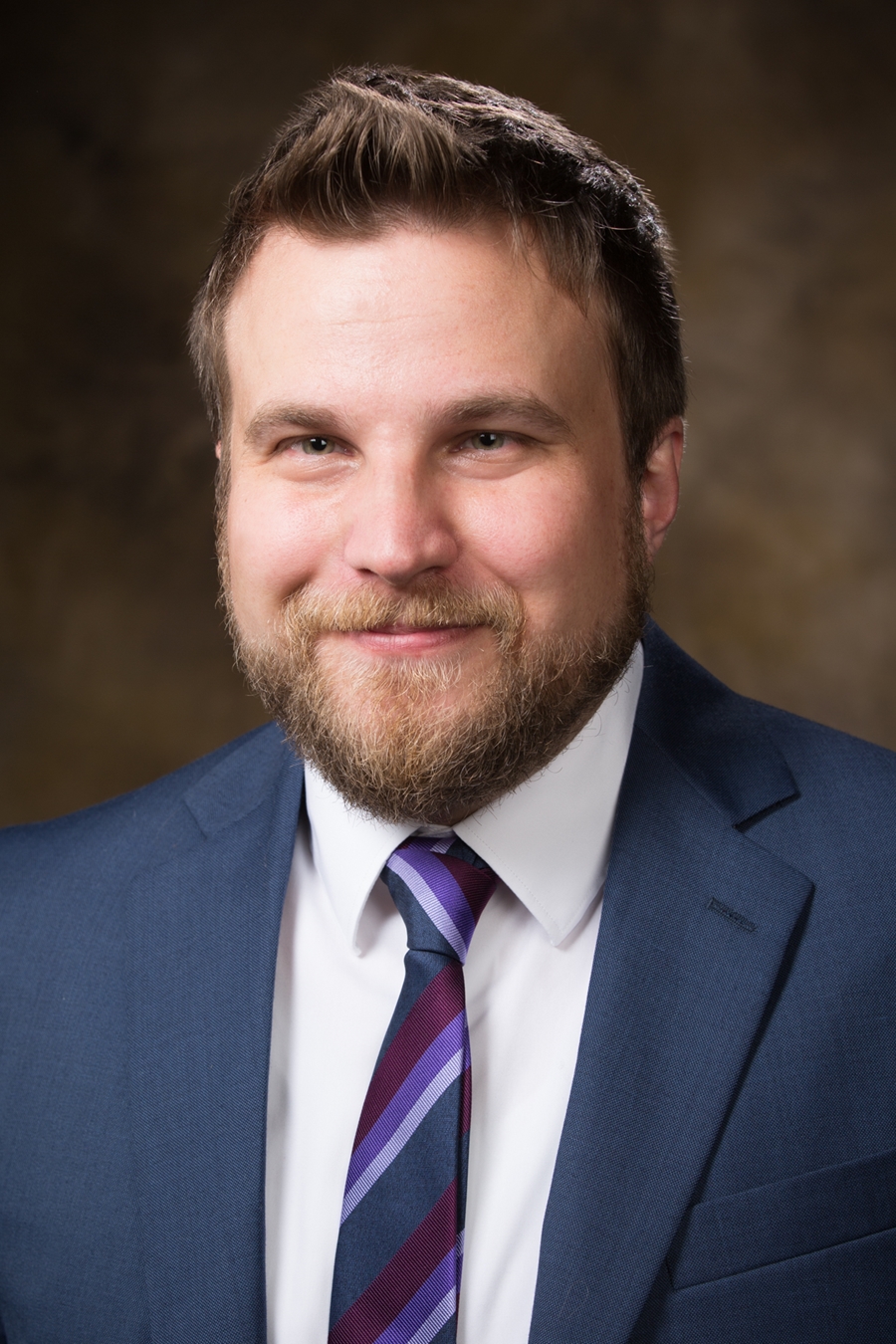Kyle Quinn of the University of Arkansas will give a seminar titled "Quantitative label-free metabolic imaging of skin wound healing."
The seminar will take place at 4 p.m. Friday, March 13, in the Chemistry Building in room 144. There will be refreshments provided prior to the seminar in room 133 starting at 3:45 p.m. The talk is free and open to the public.
Quinn is an assistant professor in the Department of Biomedical Engineering. His research interests are in developing and utilizing non-invasive label-free multiphoton microscopy techniques to characterize the spatiotemporal patterns of disease transgression and tissue repair processes. His research group is currently focused on using two-photon excited fluorescence from the metabolic cofactors (NADH and FAD), collagen second harmonic generation (SHG), fluorescence lifetime imaging (FLIM), and coherent anti-Stokes Raman spectroscopy (CARS) to establish quantitative optical biomarkers for a variety of diseases and conditions.
During the seminar, Quinn will speak on the challenges of diagnosing and treating non-healing wounds, such as diabetic foot ulcers. Non-healing wounds are difficult to diagnose and treat due to their numerous etiologies and the variable efficacy of wound care products. There is a critical need to develop new diagnostic technologies and quantitative biomarkers that are sensitive to specific wound characteristics. Multiphoton microscopy techniques are well-suited for 3D skin imaging and are capable of non-invasively detecting autofluorescence from metabolic cofactors (NADH and FAD) without the need for exogenous dyes.
Quinn will speak about the potential of label-free autofluorescence imaging to distinguish different underlying causes for delays in healing, which may be used in the future to provide patient-specific treatment strategies in the clinic.
Topics
Contacts
Megan Parette, communications assistant
Department of Chemistry and Biochemistry
479-575-4601,
